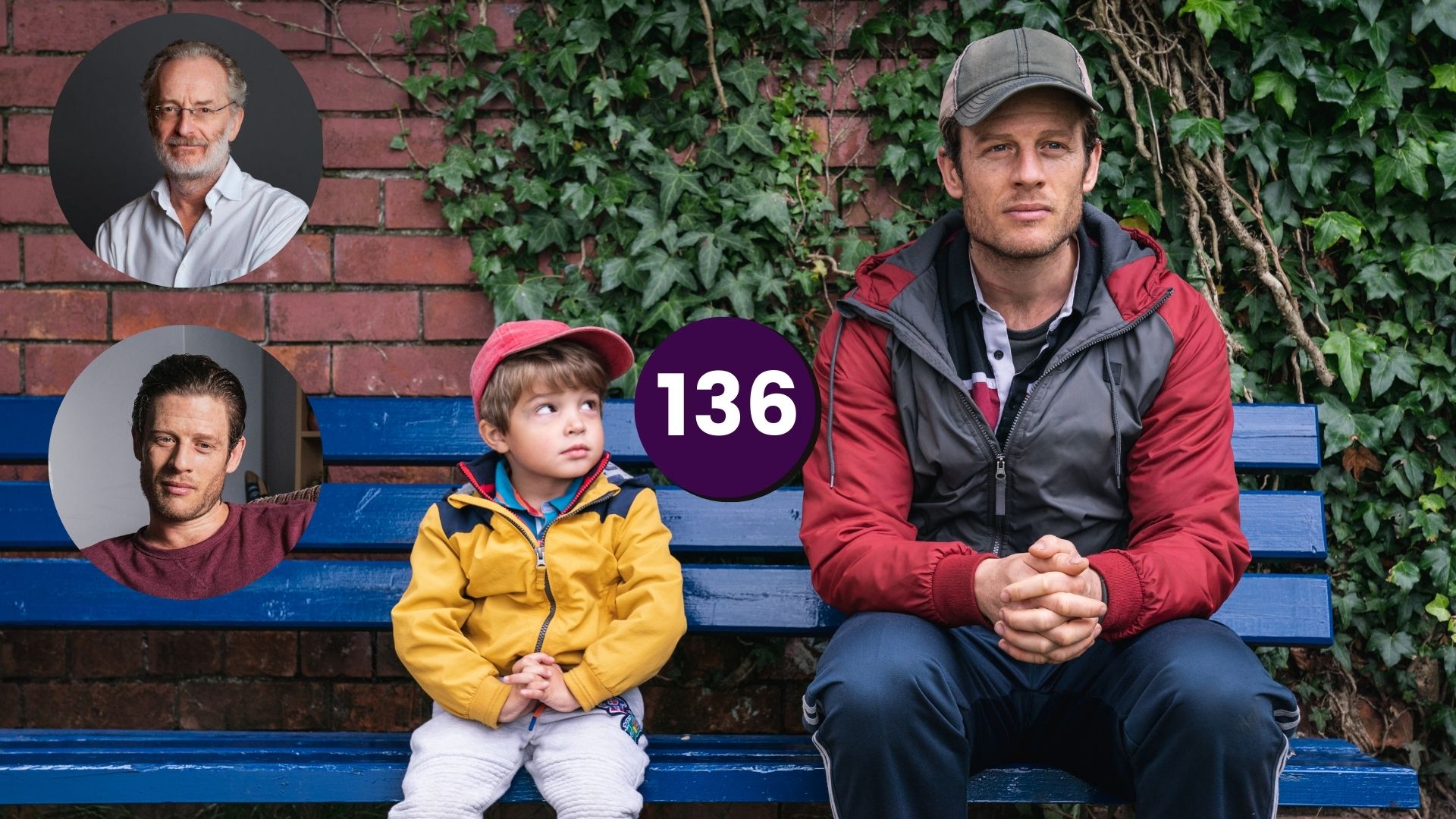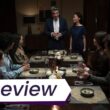On the podcast, Alex Heeney interviews Director Uberto Pasolini and James Norton about avoiding sentimentality and collaborating on their film Nowhere Special (2020).
Don’t miss a single episode. Become a member.
Get exclusive access to our entire podcast archive, members’ only episodes, and early access to new podcast seasons.

Host Alex Heeney interviews writer-director Uberto Pasolini and actor James Norton about avoiding sentimentality and collaborating on their film Nowhere Special (2020).
Seventh Row Host Alex Heeney interviews them and offers her take on why this heartwarming and heartbreaking tearjerker is worth your time.
Nowhere Special is out in US cinemas today. It’s streaming on BBC iPlayer in the UK.
An AI-generated transcript for the episode is available at the bottom of this post.
Subscribe to our FREE newsletter for updates on all Seventh Row content + streaming recommendations.
About the film Nowhere Special (Uberto Pasolini, 2020)
James Norton plays John, a 35-year-old window cleaner and single dad who is dying of an unspecified disease. To prepare for the future, he searches for adoptive parents to care for his three-year-old son, Michael, after he dies. The film is about the relationship between father and son and its mundanities, how we care for and protect our children, and how the pair learn to cope with their reality. It’s tender and warm, and James Norton is great.
Additional insights from our interview with Uberto Pasolini on his film Nowhere Special
Writer-director Uberto Pasolini answered a few follow-up questions after the podcast interview by email that don’t appear in the episode.
7R: You mentioned watching some Japanese films to prepare for the film Nowhere Special and find the tone. Did you have particular references in mind to help with this (cinematic or otherwise)?
Uberto Pasolini: Yasujirō Ozu’s films are the best examples of the “quiet” tone I was looking for. I am particularly fond of Late Spring (1949), which I quoted in my earlier film Still Life (2013). Late Spring was very much in my mind when I made Nowhere Special. My “Ozu shot” in this film comes from the beginning of Ozu’s The Only Son (1936), of a crossed young boy lying on the floor with his feet up against the door.
7R: You mentioned that part of avoiding sentimentality in the film Nowhere Special was not writing scenes with big emotional outbursts. Part of the process on set was to bring down James Norton’s performance to a more muted level.
Did you have to do the same thing in the writing? Were you writing out the emotions of what he was going through and then having to turn that into something more restrained? How did you modulate that?
Uberto Pasolini: Regarding tone, I think the writing process was less conscious (and certainly less smart) than your question might indicate. I think I am naturally averse to melodrama (I might not be if I had Douglas Sirk’s talent!). Even before I started to write, I thought that the situation our two heroes (that’s how I think of them) find themselves in is so inherently dramatic that the only way to approach it was “quietly,” very much in the same way John shares his predicament with Michael, to protect him.
When I was attempting to imagine what I would have done in his place, emotionally protecting my child to minimise the trauma was the one thing I could think of. Of course, in the few weeks we spend with him, John gradually understands that he cannot and should not hide the truth from Michael but find a way to gently share it. And that is, in a way, what the film does with the audience.
7R: You mentioned that your directing style was often about making sure you could capture what the actors were doing. How did that affect your approach to the film’s visual style and aesthetic? Were you precisely blocking the scenes? Did this affect how and when you chose to do handheld vs still camera shots?
Uberto Pasolini: From the very beginning, cinematographer Marius Panduru and I agreed to have a camera style as unobtrusive and non-distracting as possible, never betraying the existence of the filmmakers and their conscious choices. We felt a hand-held (shoulder) camera would give Marius the additional ability to follow the child actor in whatever unpredictable action he would have engaged in.
It soon became clear that Daniel would consistently adhere to the staging and blocking I had envisaged for a scene. There was no need to “chase him.” But the very gentle hand-held camera still reflected the “documentary” feel we were aiming for. Even when the action is static (e.g. father and son at the table putting candles on the cake), the camera is not fixed. So, yes, the scenes were blocked. There was no improvising. But the camera was shoulder-held throughout (apart from a few wide shots).
On the podcast – an interview with James Norton and Uberto Pasolini on Nowhere Special
- 0:00-10:49 Introduction to the film Nowhere Special
- 10:49-29:22 Interview with James Norton and Uberto Pasolini on Nowhere Special
- 29:22-31:06 Related episodes, announcements

